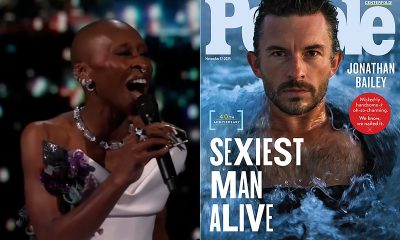a&e features
A milestone for 9:30 Club
Famed venue has welcomed gay acts throughout 35-year history
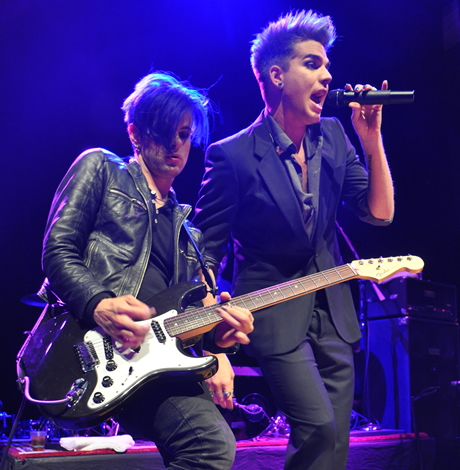
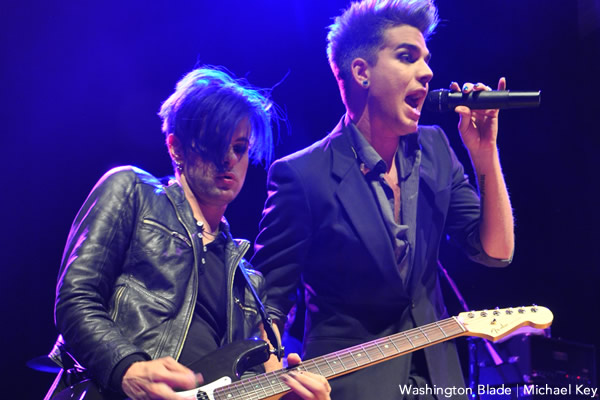
The 9:30 Club, celebrating its 35th anniversary this month, has been a gay-friendly spot since day one. Adam Lambert is among the out acts who have performed there. (Washington Blade photo by Michael Key)
The 9:30 Club is one of the nation’s most iconic venues and has hosted an enormous variety of artists since its founding in 1980. The club is currently celebrating its 35th anniversary with a new deluxe hardcover, “9:30 The Book,” which details the history of the hallowed venue and includes reflections from many of the countless artists who have performed there over the last three-and-a-half decades.
There has been no shortage of LGBT artists to play both at its original F Street location and its current location at 815 V St., N.W. The club was known for the roster of punk and hardcore heavyweights that regularly blew the doors off the place (Circle Jerks, Mission of Burma, Agent Orange, Minor Threat, Government Issue, Misfits, Black Flag, Killing Joke, Dead Kennedys and others). Seminal post-punk/goth pioneers Bauhaus played a show in early 1981, only a few months after the release of their debut album “In the Flat Field.” It wasn’t long, though, until a wider variety of artists made the 9:30 Club their tour stop in D.C., including LGBT artists of all genres.
Self-described queer artist Michael Stipe performed with R.E.M. at the venue multiple times, including in November 1982 in support of their “Chronic Town” EP, and a show on March 12, 1983, precisely one month before the band released its classic full-length debut “Murmur.” The main set opened with “Gardening at Night” and closed with “Radio Free Europe,” the two early songs that cracked open the door for their wider success. Minnesota-based Hüsker Dü, who would become one of the ‘80s most important alternative rock titans, played their first gig at the 9:30 Club on April 24, 1983. It was the start of a long and fruitful relationship between the club and Bob Mould, who’s gay, which continues to this day.
The first of multiple appearances by pop duo Erasure was on May 14, 1987 in support of their second album, “The Circus.” Gay singer Andy Bell shared his fond memories of that first 9:30 Club appearance: “The stage was so teeny and it was so crowded that I felt like Alice in Wonderland after she ate the cookie that turned her into a giant. It was an amazing gig, your head touched the ceiling and the audience would grab you by the ankles. Also it was very, very hot.”
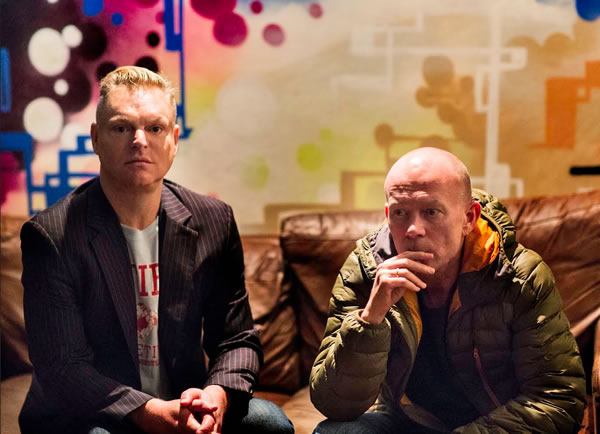
Andy Bell, left, and Vince Clarke of Erasure. (Photo by Phil Sharpe; courtesy Mitch Schneider Organization)
The duo’s most recent stop was for two electrifying performances in September 2014 in support of their album “The Violet Flame.”
Rufus Wainwright, the acclaimed Canadian singer/songwriter who is gay, has played at the 9:30 Club numerous times, with the crowd growing with his popularity.
“The 9:30 Club has a stage that moves back depending on how many spectators are at the show, always making the room look well attended,” he says. “I cherish the experience of starting out there with a sliver to work with, then a rectangle, and finally a big fat square full of punters thanks to the backwards moving stage. Hope that stage don’t start moving forward.”
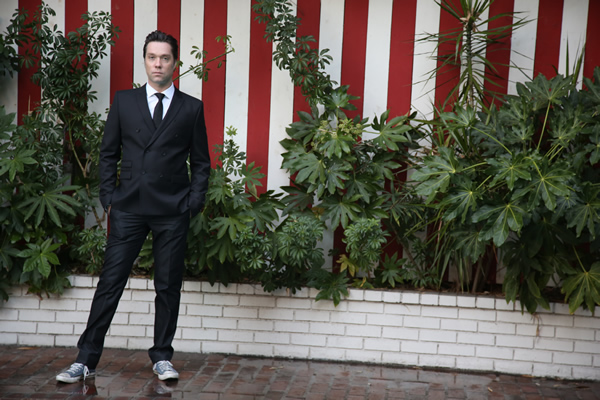
Rufus Wainwright (Photo by Sean James; courtesy Slate PR)
Melissa Etheridge, a rock legend who has been churning out great albums since her 1988 self-titled debut, played a highly publicized string of dates at the 9:30 Club in November 2014 in support of her album “This is M.E.”
Boy George, one of the all-time great pop figures of the last 30 years, appeared at the 9:30 Club on April 21, 2014 to support his excellent solo album, “This is What I Do.”
Gay icons The B-52’s have performed at the 9:30 Club in 2008 in support of their comeback album, “Funplex.”
Passion Pit, whose lead singer Michael Angelakos is gay, performed on June 3, 2010. Not long after, gay pop sensation Adam Lambert played on June 28, 2010, in support of his debut album “For Your Entertainment.”
Electric pop/rockers Neon Trees, whose lead singer Tyler Glenn is gay, performed at the club in July 2010, just as their single “Animals” was becoming a major hit.
In November 2012, Macklemore and Ryan Lewis performed their massive hit “Same Love” in support of same-sex marriage.
Visionary hip-hop artist Frank Ocean, who had recently revealed same-sex attraction and wrote about unrequited love for a man in the stunning track “Bad Religion,” performed at a show surrounded by buzz on July 23, 2012.
Critically acclaimed singer/songwriter John Grant, whose lyrics are sometimes startlingly confessional and self-deprecating, graced the 9:30 Club stage on May 11, 2014.
Atlas Sound, led by openly gay Bradford Cox, has appeared multiple times. Local D.C.-area genre-bending powerhouse Meshell Ndegeocello has also graced the 9:30 Club stage.
The flamboyant and always entertaining Scissor Sisters, featuring three gay members (Jake Shears, Babydaddy and Del Marquis) became a fixture at the club as they performed eight times between May 2004 and July 2012.
Kele Okereke, the talented frontman for Bloc Party, has appeared both with his band and as a solo artist.
Widely renowned lesbian duo Indigo Girls played at the club in March 2005.
The wonderfully outlandish and always memorable Canadian artist Peaches first appeared at the club in November 2006.
Against Me! first performanced at the 9:30 Club on Nov. 12, 2007. This was, of course, before Laura Jane Grace came out as a trans woman in 2012, as detailed in the band’s stunning 2012 album “Transgender Dysphoria Blues” (they’d play two dates in September 2014 after Grace’s transition).
Mika, the uber-creative openly gay British pop experimentalist, played on June 12, 2007.
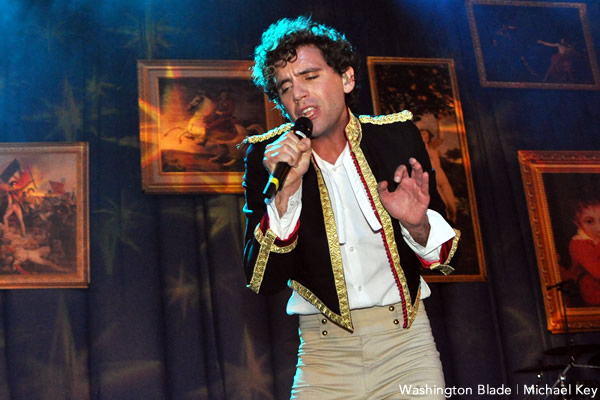
Mika (Washington Blade file photo by Michael Key)
Hercules and Love Affair, whose breakthrough hit “Blind” is about coming out as gay and then losing yourself in a world of endless hedonism, performed in November, 2008.
The lesbian country/folk/rock singer/songwriter Brandi Carlile, who released the stunning album “The Firewatcher’s Daughter” last year, played the club in October 2009, the same night at the electrifying new wave revivalists Gossip, led by the amazing Beth Ditto who has referred to herself as a “fat, feminist lesbian from Arkansas.”
Other notable appearances by LGBT artists include Ani DiFranco (who’s identifies as bisexual), who first performed at the club in 1990 and has made many stops since, the most recent being in November 2013 and with another show coming up on Jan. 26.
A month and a half after the release of their breakthrough album “Dookie,” Rock and Roll Hall of Fame Inductees Green Day (led by openly bisexual frontman Billie Joe Armstrong), played their first 9:30 Club gig on March 15, 1994.
British alt-rockers Placebo (vocalist Brian Molko is bisexual, guitarist/bassist Steven Olsdal is openly gay) performed at the club in December 1998 in support of their classic album “Without You I’m Nothing.” Skunk Anansie, led by the dynamic bisexual vocalist Skin, played in September 1999.
Indie darlings Sleater-Kinney, featuring bisexual vocalists Corin Tucker and Carrie Brownstein (who once dated), played the 9:30 Club in May 2000 and then again in September. A month later, openly gay leather-clad metal icon Rob Halford of Judas Priest fame rocked the club with his band Halford.
Critically lauded Icelandic band Sigur Rós, whose amazing lead singer Jónsi is openly gay, first performed at the club in September 2001. Jónsi would play a couple solo dates in 2010. The 9:30 Club hosted synthpop legends Soft Cell, featuring pioneering gay artist Marc Almond, in 2002 when they toured in support of their final album “Cruelty Without Beauty.”
Tegan and Sara, the openly gay duo of Canadian twin sisters, first appeared at the club in October 2002.
The 9:30 Club has also hosted other events, including “RuPaul’s Drag Race: Battles of the Seasons” in March 2015. The club frequently has gay-themed dance parties in conjunction with Capital Pride every year.
And of course, getting back to Bob Mould, the alternative rock titan teamed up with DJ/producer/musician extraordinaire Rich Morel — who at last count has an astonishing 25 No. 1 singles on the Billboard Dance Chart to his credit — for the Blowoff dance party, which started small in the club’s back bar and turned into a mega event that eventually traveled to other cities. Morel cites the 9:30 Club as essential to Blowoff’s success.
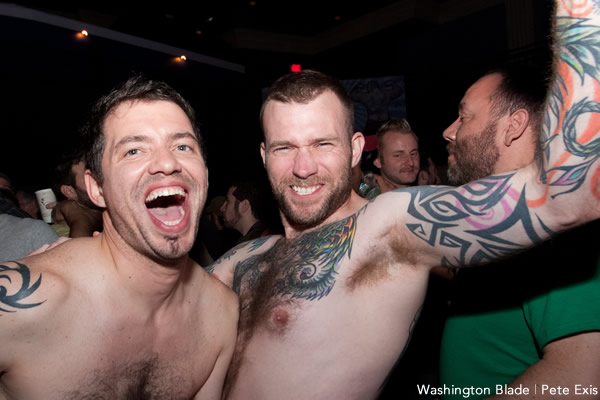
Blowoff (Washington Blade file photo by Pete Exis)
“The 930 club was Blowoff’s home base,” he says. “When Blowoff expanded and started doing shows around the country the vibe and mood we had built at the 930 was what we brought with us. The staff was so great and the space made for many memorable nights.”
He also fondly recounted for us the time a certain Lady Gaga came to see Blowoff in all its glory.
“I had first met Lady Gaga when I was touring with Cyndi Lauper,” Morel says. “Gaga opened a show we were playing in San Francisco. Gaga was just starting out and we chatted a bit and exchanged info. Fast forward a couple years and she’s the biggest thing on the planet. I got a text message from her PR guy that she was in D.C. and wanted to come down to Blowoff. It was a crazy night. She arrived with a security crew all dressed in Armani. We were hanging backstage and she burned a CDR of her new song, which was not released yet. She said the song was delicious and asked if I would debut it. It was “Bad Romance.” I played it during my set while she stood and waved at the crowd from the balcony. It was a surreal pop moment that I was delighted to be a part of.”
There is no question that if the 9:30 Club walls could talk, the stories they could tell would fill volumes. So many of the biggest artists in rock history have performed at the club that it’s hard to keep track, and that includes many LGBT artists as well. It’s been an impressive 35-year run for the club, with lots of rock ‘n’ roll memories made along the way.
Blade, 9:30 neighbors at former location
For a few years in the 1980s, the Washington Blade was a neighbor to the 9:30 Club at its original F Street location.
Although the Blade staff — especially on production night deadlines — sometimes worked late, long-time employees say the two entities had no major issues.
“We would of course work later hours back then,” says Phil Rockstroh, a long-time Blade staffer. “Everything was typeset and done by hand without computers and fax machines so getting through deadlines was much more time consuming.”
He says the noise wasn’t a problem.
“It wasn’t too bad as older buildings were constructed more solidly,” Rockstroh says. “There was only one entrance to the building and you entered so far to the elevator that went up to the other floors and then continued down the hall to the entrance to the 9:30 Club. Frequently at night if I was coming or going, there were people spilling out the doors.”
Despite the proximity, Rockstroh says he only remembers going to a concert there once to see a punk showcase with a former co-worker, the late Lyn Frizzell.
“The Blade has always had a friendly relationship with the 9:30 Club,” he says.
a&e features
Queer highlights of the 2026 Critics Choice Awards: Aunt Gladys, that ‘Heated Rivalry’ shoutout and more
Amy Madigan’s win in the supporting actress category puts her in serious contention to win the Oscar for ‘Weapons’
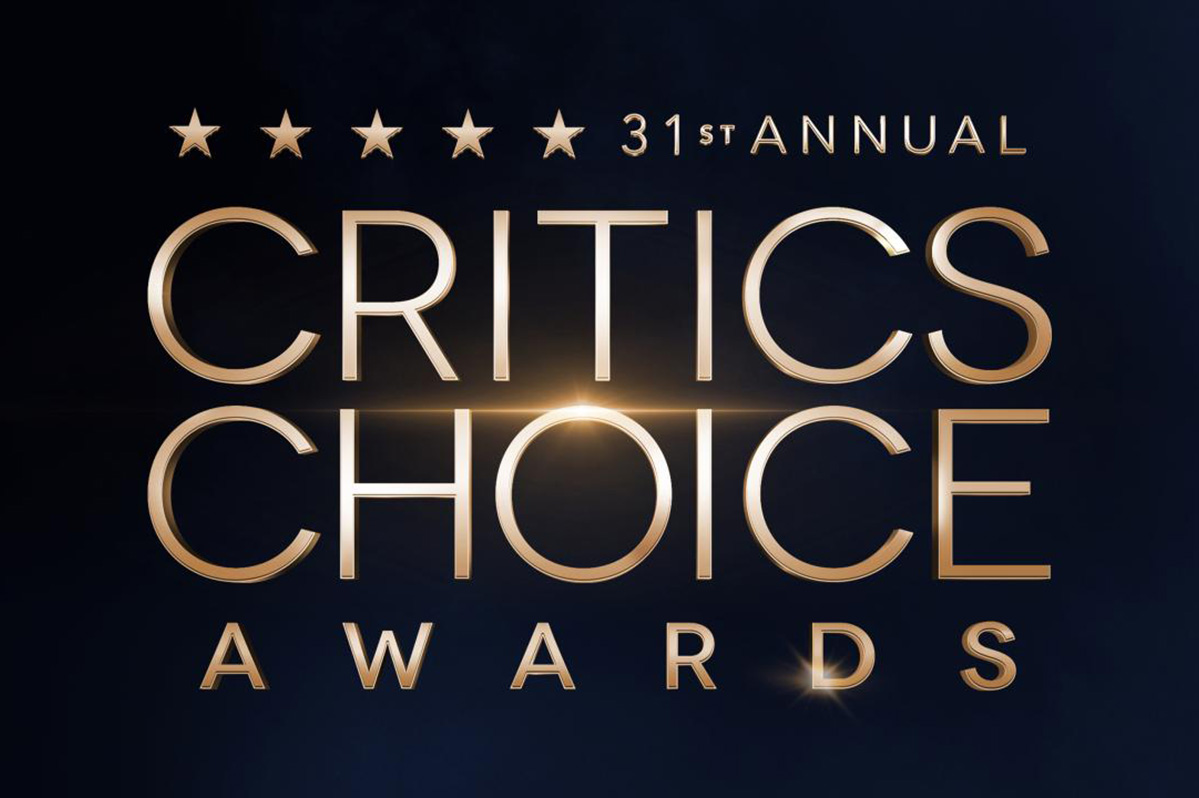
From Chelsea Handler shouting out Heated Rivalry in her opening monologue to Amy Madigan proving that horror performances can (and should) be taken seriously, the Critics Choice Awards provided plenty of iconic moments for queer movie fans to celebrate on the long road to Oscar night.
Handler kicked off the ceremony by recapping the biggest moments in pop culture last year, from Wicked: For Good to Sinners. She also made room to joke about the surprise hit TV sensation on everyone’s minds: “Shoutout to Heated Rivalry. Everyone loves it! Gay men love it, women love it, straight men who say they aren’t gay but work out at Equinox love it!”
The back-to-back wins for Jacob Elordi in Frankenstein and Amy Madigan in Weapons are notable, given the horror bias that awards voters typically have. Aunt Gladys instantly became a pop culture phenomenon within the LGBTQ+ community when Zach Cregger’s hit horror comedy released in August, but the thought that Madigan could be a serious awards contender for such a fun, out-there performance seemed improbable to most months ago. Now, considering the sheer amount of critics’ attention she’s received over the past month, there’s no denying she’s in the running for the Oscar.
“I really wasn’t expecting all of this because I thought people would like the movie, and I thought people would dig Gladys, but you love Gladys! I mean, it’s crazy,” Madigan said during her acceptance speech. “I get [sent] makeup tutorials and paintings. I even got one weird thing about how she’s a sex icon also, which I didn’t go too deep into that one.”
Over on the TV side, Rhea Seehorn won in the incredibly competitive best actress in a drama series category for her acclaimed performance as Carol in Pluribus, beating out the likes of Emmy winner Britt Lower for Severance, Carrie Coon for The White Lotus, and Bella Ramsey for The Last of Us. Pluribus, which was created by Breaking Bad’s showrunner Vince Gilligan, has been celebrated by audiences for its rich exploration of queer trauma and conversion therapy.
Jean Smart was Hack’s only win of the night, as Hannah Einbinder couldn’t repeat her Emmy victory in the supporting actress in a comedy series category against Janelle James, who nabbed a trophy for Abbott Elementary. Hacks lost the best comedy series award to The Studio, as it did at the Emmys in September. And in the limited series category, Erin Doherty repeated her Emmy success in supporting actress, joining in yet another Adolescence awards sweep.
As Oscar fans speculate on what these Critics Choice wins mean for future ceremonies, we have next week’s Golden Globes ceremony to look forward to on Jan. 11.
a&e features
Looking back at the 10 biggest A&E stories of 2025
‘Wicked,’ Lady Gaga’s new era, ‘Sexy’ Bailey and more
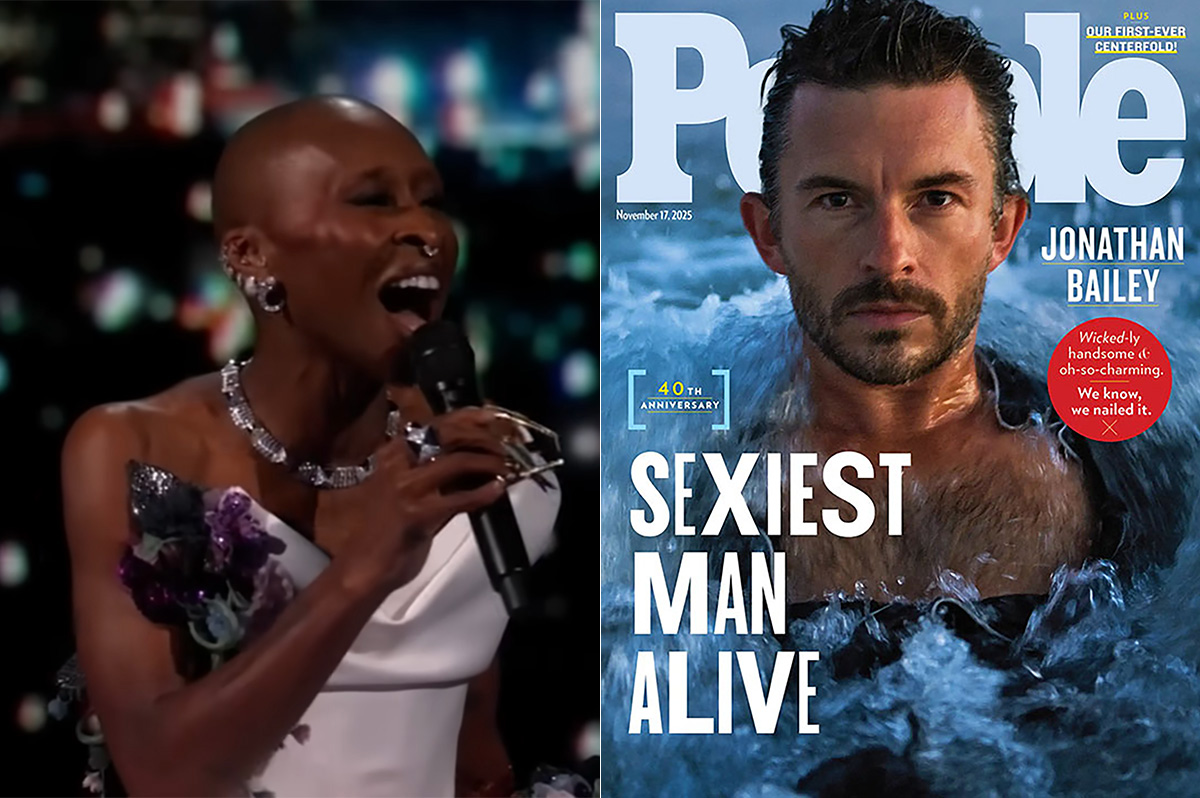
Although 2025 was a year marked by countless attacks on trans rights and political setbacks, the year also saw brilliant queer artists continuing to create art. From Cannes and Sundance Award winners now vying for Oscar consideration to pop icons entering new stages of their careers, queer people persevered to tell their stories through different media.
With the state of the world so uncertain, perhaps there’s no more vital time to celebrate our wins, as seen through some of this year’s top pop culture moments. While there’s no collection of 10 stories that fully encompass “the most important” news, here are some events that got the gays going:
10. ‘Mysterious Gaze of the Flamingo’ wins big at Cannes
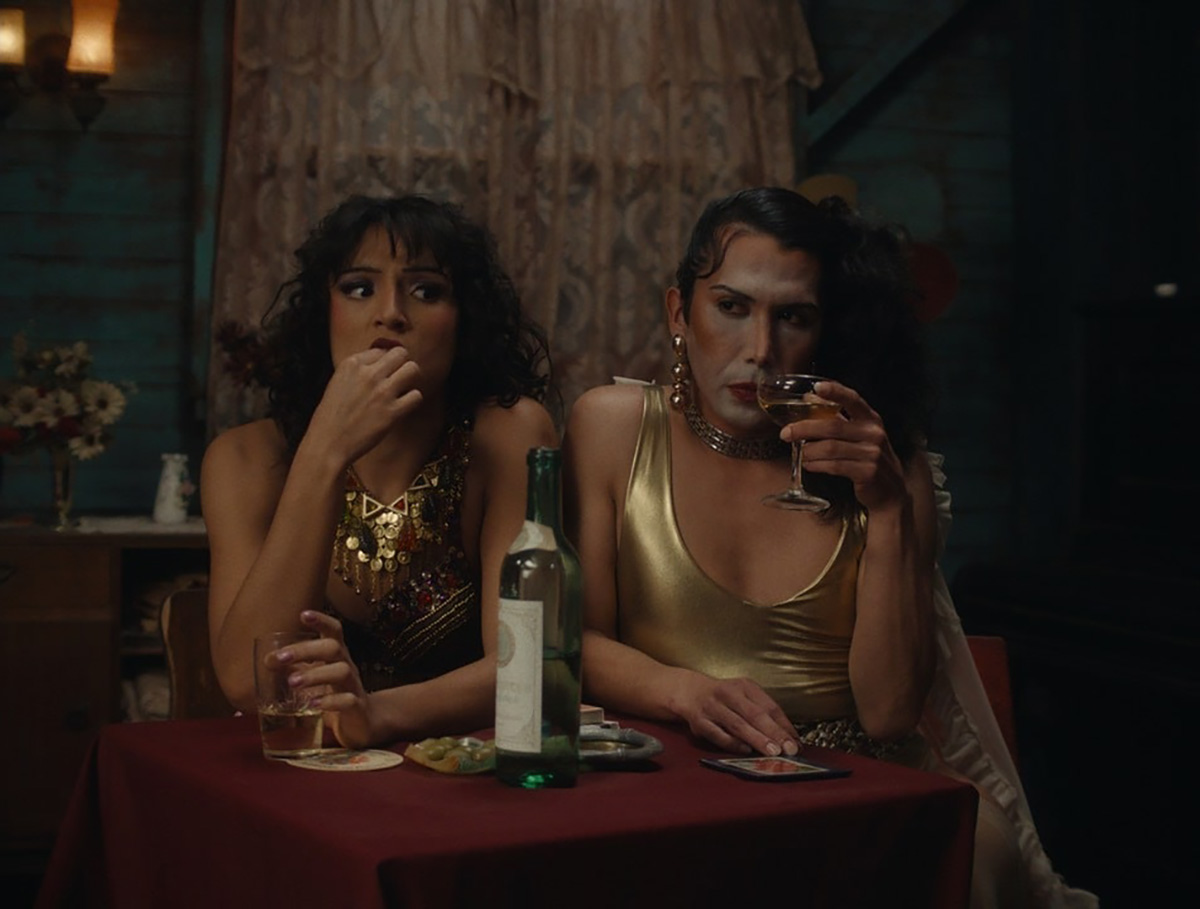
The Cannes Film Festival has become a crucial start for films hoping to make their way to the Oscars, and first-time director Diego Céspedes won the top Un Certain Regard prize for his intimate western “The Mysterious Gaze of the Flamingo.” The film is set in the ‘80s and is intended as an allegory for the AIDS epidemic. Seeing a film that unpacks vital queer history win one of the most coveted awards at Cannes has been a huge point of pride in the independent filmmaking community.
Since the film bowed at Cannes, it has been selected as Chile’s Oscar entry in the Best International Feature race. Speaking with The Blade during the film’s AFI Fest run in October, Céspedes said: At first, I was kind of scared to have this campaign position in the times that we’re living [in] here. But at the same time, I think the Oscars mean a huge platform — a huge platform for art and politics.”
9. ‘The Last of Us’ returns for an even gayer season 2
While the first season of The Last of Us gave us one of TV’s most heartbreaking queer love stories in the episode “Long, Long Time,” Season 2 doubled down on its commitment to queer storytelling with the blossoming relationship between Ellie (Bella Ramsey) and Dina (Isabela Merced). The show expanded on the pair’s relationship in the original video game, making it perhaps the central dynamic to the entire season. That unfortunately came with more homophobic backlash on the internet, but those who checked out all the episodes saw a tender relationship form amid the show’s post-apocalyptic, often violent backdrop. For their performance, Ramsey was once again nominated for an Emmy, but Merced deserved just as much awards attention.
8. ‘Emilia Pérez’ sparks controversy
Jacques Audiard’s genre-bending trans musical “Emilia Pérez” proved to be an awards season juggernaut this time last year, winning the Golden Globe for Best Musical/Comedy. But when the lead star Karla Sofia Gascón’s racist, sexist, and homophobic old tweets resurfaced, the film’s Oscar campaign became a tough sell, especially after Netflix had tried so hard to sell Emilia Pérez as the “progressive” film to vote for. Mind you, the film had already received significant backlash from LGBTQ+ audiences and the Mexican community for its stereotypical and reductive portrayals, but the Gascón controversy made what was originally just social media backlash impossible to ignore. The only person who seemed to come out of the whole debacle unscathed was Zoe Saldaña, who won the Oscar for Best Supporting Actress over Ariana Grande.
7. ‘Sorry, Baby’ establishes Eva Victor as major talent
Back in January at the Sundance Film Festival, Eva Victor (known by many for her brand of sketch comedy) premiered their directorial debut “Sorry, Baby” to rave reviews, even winning the Waldo Salt Screening Award. Victor shadowed Jane Schoenbrun on the set of “I Saw the TV Glow,” and seeing Victor come into their own and establish such a strong voice immediately made them one of independent cinema’s most exciting new voices. A memorable scene in the film sees the main character, Agnes (played by Victor), struggling to check a box for male or female, just one example of how naturally queerness is woven into the fabric of the story.
Most recently, Victor was nominated for a Golden Globe for her performance in the film, and she’s represented in a category alongside Jennifer Lawrence (“Die My Love”), Jessie Buckley (“Hamnet”), Julia Roberts (“After the Hunt”), Renate Reinsve (“Sentimental Value”) and Tessa Thompson (“Hedda”). The film also received four Independent Spirit Award nominations overall.
6. Paul Reubens comes out in posthumous doc
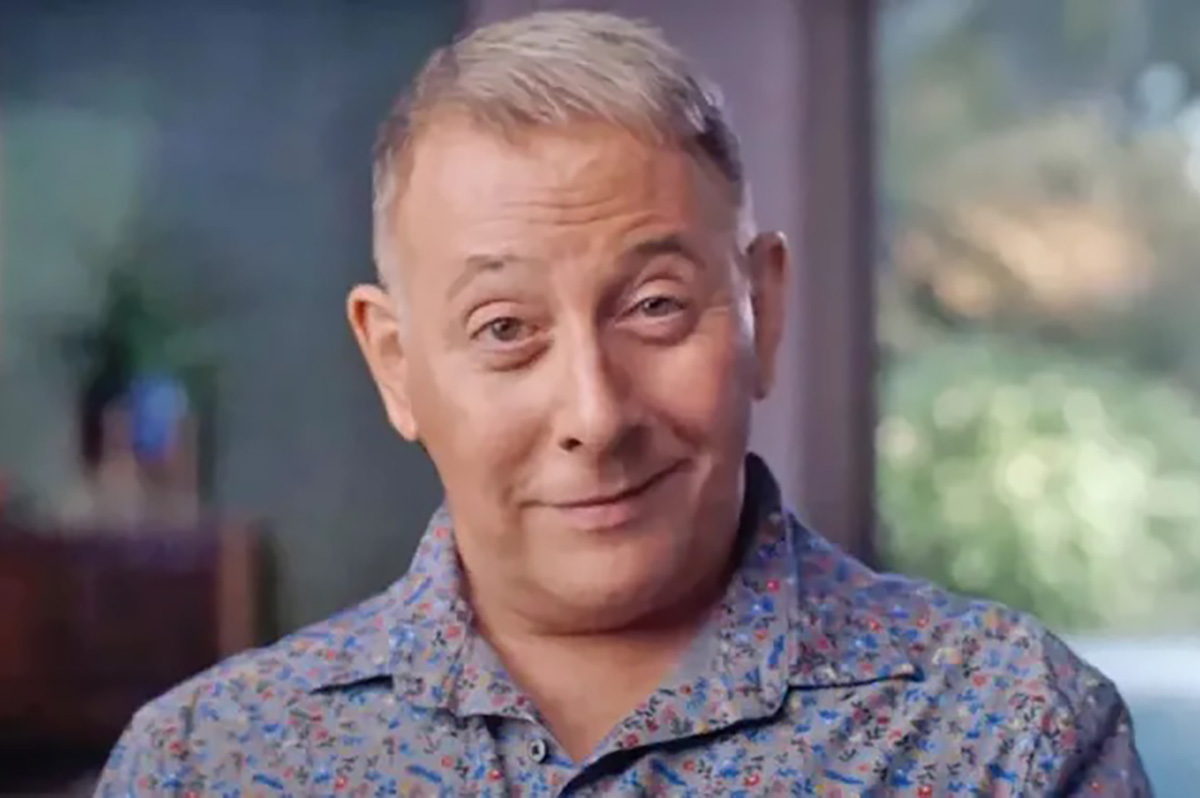
While Paul Reubens never publicly came out as gay before passing away in 2023, the two-part documentary “Pee-wee as Himself” premiered back in May on HBO Max, giving the legendary comedian a chance to posthumously open up to the world. Directed by Matt Wolf, the documentary explores how Reubens found his alter ego Pee-Wee Herman and why he kept his private life private.
The documentary won an Emmy in the Outstanding Documentary or Nonfiction Special category and remains one of the most critically acclaimed titles of the year with a 100% Rotten Tomatoes score. Also worth noting, the National Geographic documentary Sally told the posthumous coming out story of Sally Ride through the help of her long-time partner, Tam O’Shaughnessy.
5. Lady Gaga releases ‘Mayhem’
Lady Gaga entered a new phase of her musical career with the release of Mayhem, her seventh album to date. From the frenzy-inducing pop hit Abracadabra to the memorable Bruno Mars duet featured on “Die With a Smile,” seeing Gaga return to her roots and make an album for the most die-hard of fans was especially rewarding after the underwhelming film releases of “House of Gucci” and “Joker: Folie à Deux.” Gaga has been touring with The Mayhem Ball since July, her first arena tour since 2018. She even extended her tour into 2026 with more North American dates, so the party isn’t stopping anytime soon. And Gaga is even set to make an appearance next May in “The Devil Wears Prada 2.”
4. Cynthia Erivo, Ariana Grande perform at the Oscars
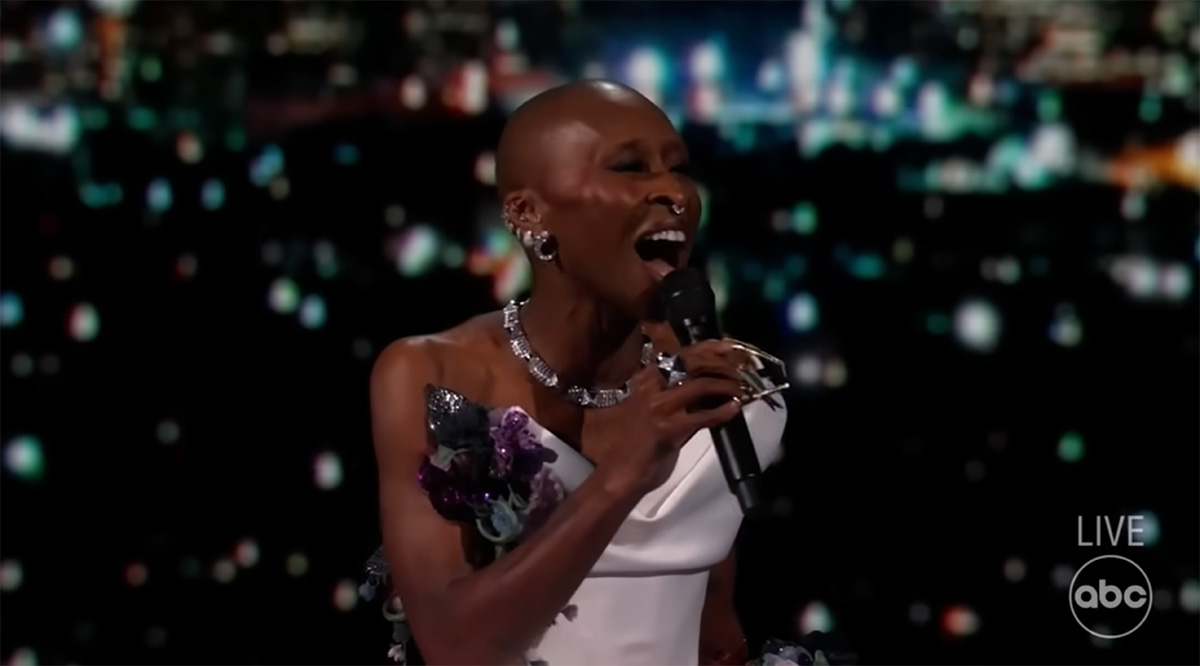
While “Wicked: For Good” didn’t quite reach the heights of the first film, we will forever have Cynthia Erivo and Ariana Grande’s breathtaking live performance that opened the 97th Academy Awards. The pair sang a rendition of “Over the Rainbow,” “Home,” and “Defying Gravity,” paying proper homage to the original 1939 “Wizard of Oz.” Even non-Wicked fans can’t deny how magical and brilliantly staged this performance was. With both Erivo and Grande up for acting Oscars last year, they’re hoping to repeat success and make history with consecutive nominations. Either way, let’s hope there’s another live performance in the making, especially with two new original songs (The Girl in the Bubble and No Place Like Home) in the mix.
3. Indya Moore speaks out against Ryan Murphy
Indya Moore has consistently used social media as a platform for activism, and in September, posted a 30-minute Instagram live speaking out against “Pose” co-creator Ryan Murphy. Moore claimed that Murphy wasn’t being a true activist for trans people. “Ryan Murphy, we need you to do more. You need to address the racism, the violence, and the targeting of people on your productions, Ryan Murphy. You do need to make sure trans people are paid equally. Yes, Janet did the right thing,” Moore said. Murphy was also back in the headlines this year for the critically panned “All’s Fair” and the controversial “Monster: The Ed Gein Story” starring Laurie Metcalf and Charlie Hunnam.
2. Cole Escola wins Tony for Best Leading Actor
Few pop culture moments this year brought us together more than Cole Escola winning a Tony award for “Oh, Mary!” the Broadway show they created, wrote and starred in (we love a triple threat!) Escola made history by becoming the first nonbinary person to win a Tony in the leading actor category, and seeing them excitedly rush to the stage wearing a Bernadette Peters-inspired gown instantly became a viral social media moment.
The cherry on top of Escola’s major moment is the recent news that they are writing a Miss Piggy movie with Jennifer Lawrence and Emma Stone producing — news that also broke the internet for the better. We cannot wait!
1. Jonathan Bailey makes gay history as ‘Sexiest Man Alive’
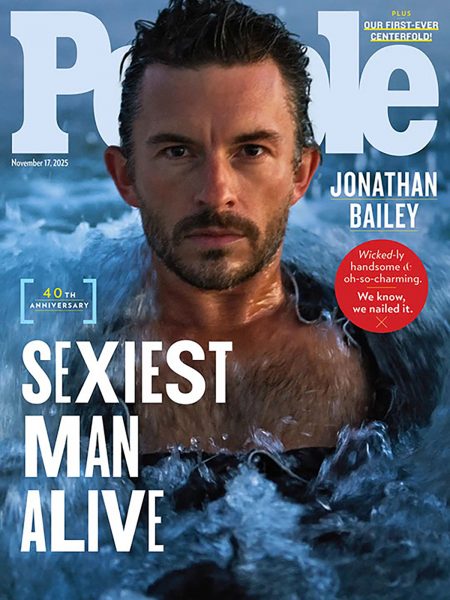
The same year as his on-screen roles in blockbusters “Jurassic World Rebirth” and “Wicked: For Good,” Jonathan Bailey made history as the first openly gay man to be named People magazine’s “Sexiest Man Alive.” The fact that it took 40 years for an openly gay man to earn the title is a signifier of how far we still have to go with queer representation, and seeing Bailey celebrated is just one small step in the right direction.
“There’s so many people that want to do brilliant stuff who feel like they can’t,” he told PEOPLE, “and I know the LGBT sector is under immense threat at the moment. So it’s been amazing to meet people who have the expertise and see potential that I could have only dreamed of.” In 2024, Bailey founded the charity titled The Shameless Fund, which raises money for LGBTQ+ organizations.
a&e features
Your guide to D.C.’s queer New Year’s Eve parties
Ring in 2026 with drag, leather, Champagne, and more
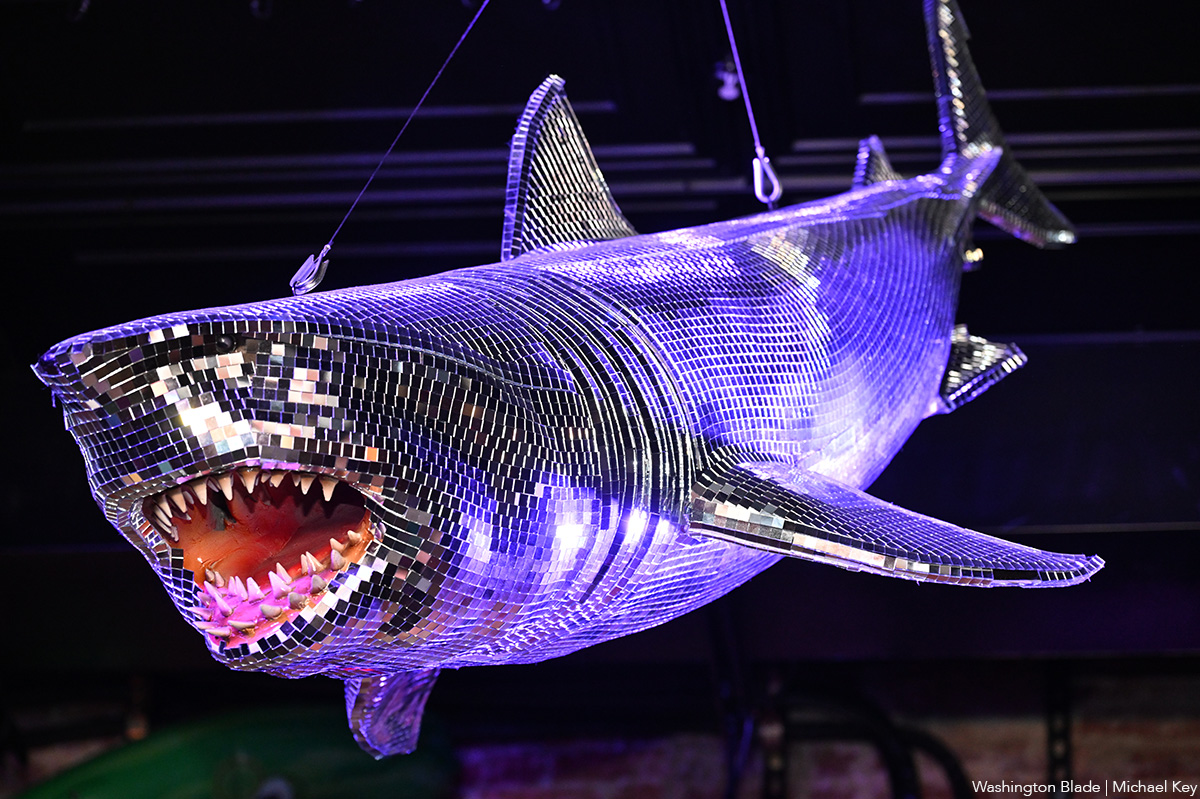
With Christmas in the rear view mirror, we can turn our attention to ringing in a much-anticipated New Year with a slew of local LGBTQ parties. Here’s what’s on tap.
Pitchers
This spacious Adams Morgan bar is hosting the “Pitchers’ Perfect New Year’s Eve.” There will be a midnight Champagne toast, the ball drop on the big screens, and no cover, all night long. The bar doesn’t close until 4 a.m., and the kitchen will be open late (though not until close). All five floors will be open for the party, and party favors are promised.
Trade
D.C.’s hottest bar/club combo is leaning into the Shark motif with its NYE party, “Feeding Frenzy.” The party is a “glitterati-infused Naughty-cal New Year’s Even in the Shark Tank, where the boats are churning and the sharks are circling.” Trade also boasts no cover charge, with doors opening at 5 p.m. and the aforementioned Shark Tank opening at 9 p.m.. Four DJs will be spread across the two spaces; midnight hostess is played by Vagenesis and the two sea sirens sensuously calling are Anathema and Justin Williams.
Number Nine
While Trade will have two DJs as part of one party, Number Nine will host two separate parties, one on each floor. The first floor is classic Number Nine, a more casual-style event with the countdown on TVs and a Champagne midnight toast. There will be no cover and doors open at 5 p.m. Upstairs will be hosted by Capital Sapphics for its second annual NYE gathering. Tickets (about $50) include a midnight Champagne toast, curated drink menu, sapphic DJ set by Rijak, and tarot readings by Yooji.
Crush
Crush will kick off NYE with a free drag bingo at 8 p.m. for the early birds. Post-bingo, there will be a cover for the rest of the evening, featuring two DJs. The cover ($20 limited pre-sale that includes line skip until 11 p.m.; $25 at the door after 9 p.m.) includes one free N/A or Crush, a Champagne toast, and party favors (“the legal kind”). More details on Eventbrite.
Bunker
This subterranean lair is hosting a NYE party entitled “Frosted & Fur: Aspen After Dark New Year’s Eve Celebration.” Arriety from Rupaul Season 15 is set to host, with International DJ Alex Lo. Doors open at 9 p.m. and close at 3 p.m.; there is a midnight Champagne toast. Cover is $25, plus an optional $99 all-you-can-drink package.
District Eagle
This leather-focused bar is hosting “Bulge” for its NYE party. Each District Eagle floor will have its own music and vibe. Doors run from 7 p.m.-3 a.m. and cover is $15. There will be a Champagne toast at midnight, as well as drink specials during the event.
Kiki, Shakiki
Kiki and its new sister bar program Shakiki (in the old Shakers space) will have the same type of party on New Year’s Eve. Both bars open their doors at 5 p.m. and stay open until closing time. Both will offer a Champagne toast at midnight. At Kiki, DJ Vodkatrina will play; at Shakiki, it’ll be DJ Alex Love. Kiki keeps the party going on New Year’s Day, opening at 2 p.m., to celebrate Kiki’s fourth anniversary. There will be a drag show at 6 p.m. and an early 2000s dance party 4-8 p.m.
Spark
This bar and its new menu of alcoholic and twin N/A drinks will host a NYE party with music by DJ Emerald Fox. Given this menu, there will be a complimentary toast at midnight, guests can choose either sparkling wine with or without alcohol. No cover, but Spark is also offering optional wristbands at the door for $35 open bar 11 p.m.-1 a.m. (mid-shelf liquor & all NA drinks).



